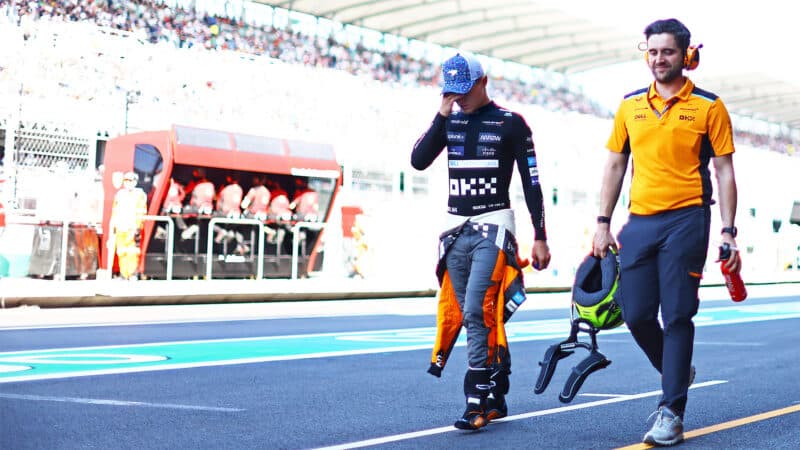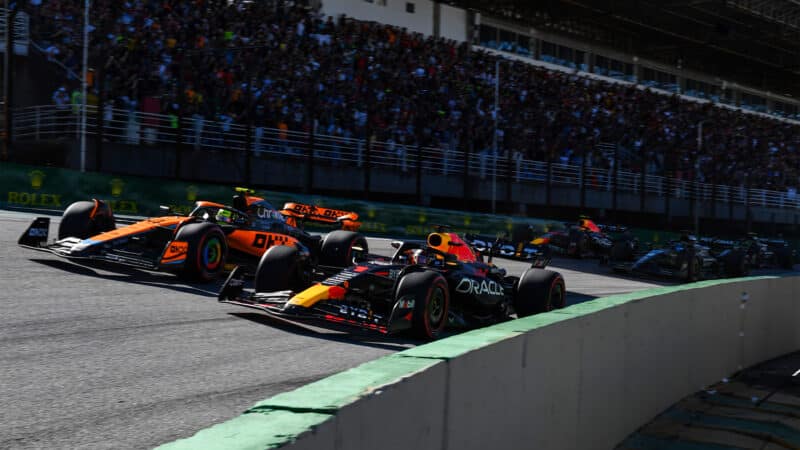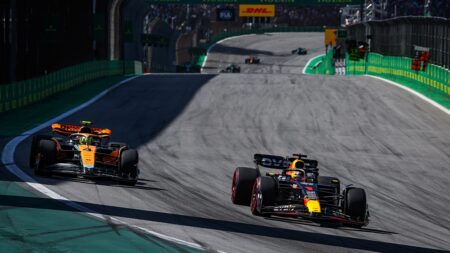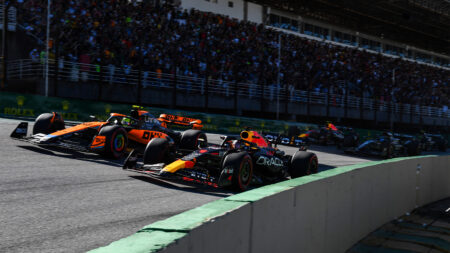For Norris, a similar fear motivates him. He openly spoke about his lack of confidence in the past, how he had struggled with his mental health, especially in his early years in Formula 1.
Just as any driver who becomes highly-rated and popular, earning millions each year in their early 20s, they might start to give off a slightly different impression, but Norris clearly hasn’t become any easier on himself.
“I probably say like the last four or five weekends have been my strongest in terms of absolute pace and extracting the maximum out of the car,” Norris said during the Brazilian race weekend. “I just made those silly little mistakes here and there in qualifying, whether it was Mexico or previous races.
“But a lot of these times the pace was probably some of my strongest and the best I’ve been driving, if it wasn’t for these little things. And, of course, then I’m disappointed at times and I always say I should have been on pole or I should have been second and there just have been a lot of should-have, would-have, could-haves, which I understand, but it’s because it’s the truth.
“But here, Mexico, Suzuka, Texas, Qatar, I think all of these have been some very good races, very good performances, extremely good pace, probably in every single one but just a few too many of these little mistakes. And I think that’s why I’ve been disappointed, it’s when you’re missing out on a pole or P2. You feel like you’ve missed out on some very good opportunities.”

Norris was clearly disappointed after qualifying 19th in Mexico City but has since rebounded in form
Getty Images
I’ll give him Mexico, where a combination of errors from both Norris himself and his McLaren team’s tyre choice led to his elimination in Q1. And Qatar too, where Norris twice exceeded track limits in Q3 and ended up having to start 10th when the car was good enough to lock out the front row a day later ahead of the sprint.
And given the remarkable steps forward that McLaren has made so far this season to deliver a car that is almost on a par with the Red Bull, and the level that Norris is operating at, the stunning comeback drives in both of those races — to fifth and third respectively — understandably come with a hint of what might have been but for a starting position reflective of that performance.
His frustration after qualifying in Brazil was more aimed at the team than his own performance after he felt McLaren left it too late to get its drivers out on track with a storm rolling in, but the demeanour he then carried into the sprint shootout as well hinted at it risking having a negative impact on him.
Norris laughed at the fact he’d taken sprint pole with what he felt was a really poor lap, and then pointed out how it showed what McLaren had missed out on a day before. But you can’t control what has gone before, only the present and what’s ahead, so watching Sky’s coverage during a rare weekend at home, I’ll admit I was pleased to hear Martin Brundle feel the need to raise the point.
“I would say I admire your humility and your honesty,” Brundle said. “Don’t be so hard on yourself, to give you a piece of advice you haven’t asked for! Because everybody else will be, everybody’s ready to be in the world of sport.”

Norris ran a close second to Verstappen at Interlagos — evidence of his brilliant pace
Red Bull
And he’s spot on. I’m sitting here a little hypocritically perhaps because of the times I will write about when a driver isn’t performing, but Norris seems to risk carrying the small mistakes and errors and then personally using his successes — of which there are so many at the moment — to shine a light on those failings again.




